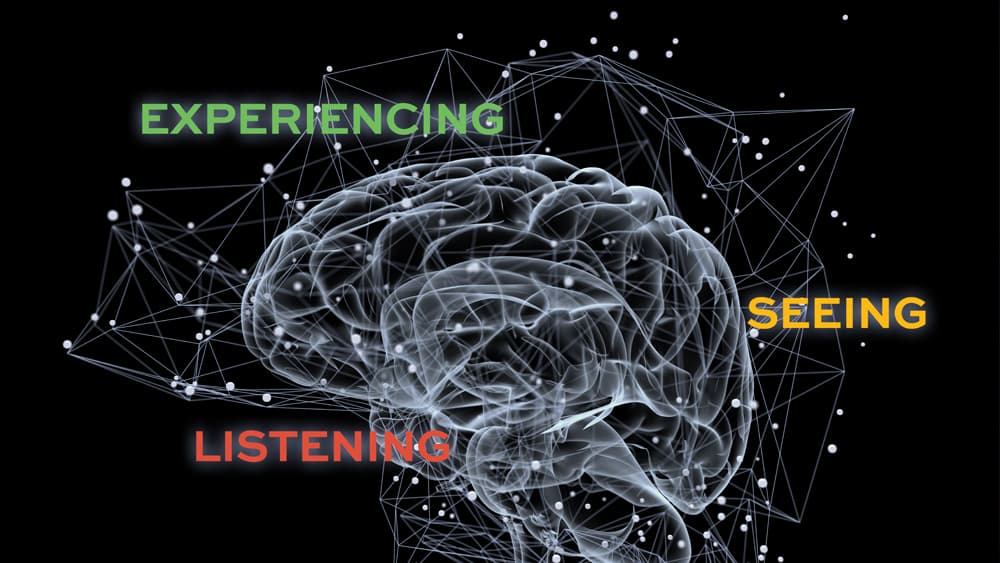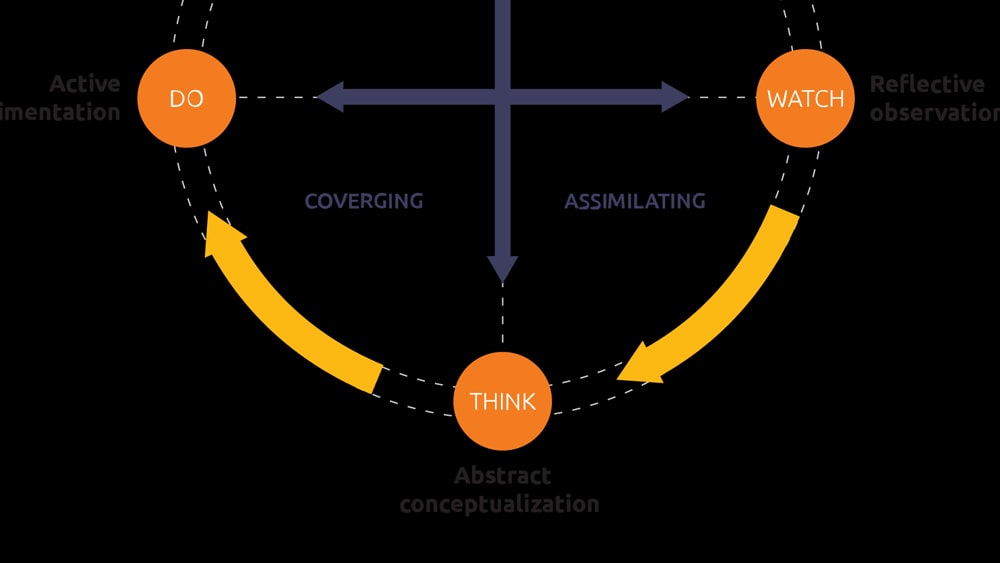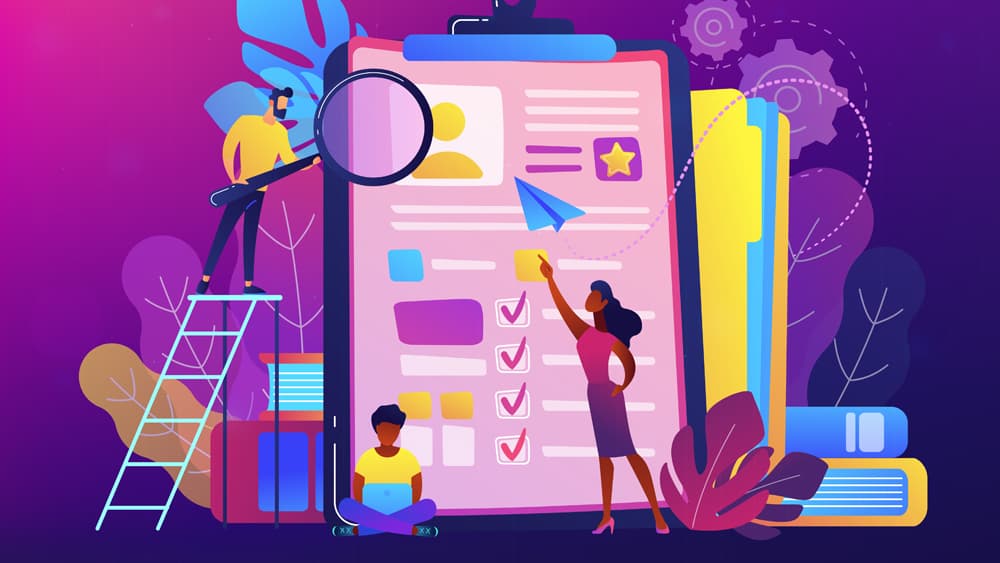Blended learning
With technological advancements and changing circumstances, the need for alternatives to traditional face-to-face education is rising. Blended learning combines hard and soft, online and offline, and individual and group learning– the options hereby are endless! Inchainge’s business simulations lend themselves to many forms of blended learning, find out which one suits you best!
What is blended learning?
Blended learning is, simply put, the combination of at least two different methods of approaching learning.
This means that sometimes the physical presence of both learners and instructor is required, but in other instances, learners themselves have control over when, where, and with what speed they approach the materials. It can also mean that sometimes learning is done by reading a book, while group discussions, simulations, or mentoring are the suitable method at other times.
What blended learning models exist?
Blended learning is not one fixed method – it simply alludes to the presence of more than one method. Incorporating blended learning can take a variety of shapes. At Inchainge, we take all advantage of all possibilities!
1. Hard Skills vs. Soft Skills:
Hard skills are usually focus on the learning of concrete facts, formulas, and concepts. When approaching a new topic or skill, learning hard skills often forms the basis of the education, as it provides the learner with a basic understanding. Soft skills often allude to a more experiential approach to learning, where earlier learned facts and formulas are applied.
2. Online vs. Offline:
Offline education is still the standard method of teaching, where the instructor leads traditional classroom sessions. However, nowadays, these standard classroom sessions are increasingly enhanced by digital tools. In some cases, online exclusive learning is the most favorable method, as it can save costs and increase accessibility.
3. Group vs. Individual:
While individual learning is a rather straightforward concept, – the learner might have an instructor but completes all tasks on his or her own – group learning can take a variety of forms. For example, group learning can be facilitated in the form of teamwork, where a group works together on one task. It can also take the shape of peer-to-peer learning, where a group works together on different tasks, with everyone learning from each other. It can even occur in the form of mentoring, where an experienced learner works together with a novice learner.
4. Asynchronous vs. Synchronous:
Synchronous learning is learning that happens at the same time for the instructor and the learners, meaning that there is real-time interaction between them. Asynchronous learning, on the other hand, is learning that does not necessarily happen at the same time for the instructor and the learners – the content is created and made available for use.
5. Self-paced vs. Instructor-paced:
In instructor-paced courses, course materials become available at specific times as the course progresses. In contrast, self-paced courses do not set a fixed schedule. All the course materials are available as soon as the course starts, and the learner decides when to approach these.
What are the benefits of blended learning?
All forms of learning have their advantages and disadvantages. By using blended learning methods, the best of everything can be adapted to the individual circumstances of the learners. Blended learning also ensures holistic learning – the combination of knowledge and experience, independence and social skills, and adaptability to different methods, are what creates a well-rounded person.
Is Blended Learning Effective?
Blended learning allows learners to retain information more efficiently and be engaged – irrespective of the industry. Blended Learning lends itself to being adapted to every learner’s needs and unique learning style. Some benefit more from reading text accompanied with presentations, and others will understand the topics better after watching relevant videos – blended learning allows each and every learner to use learning methods that suit his or her abilities best.
Want to know more about blended learning at Inchainge
Inchainge’s business simulation games facilitate, if not encourage, the use of blended learning methods. While all our business games can be used in traditional classroom settings, they are also web based. Thus, be accessed from anywhere at any time, and thus also allow for online-exclusive teaching. Similarly, our simulations can be done alone or as a group, self-paced or guided, asynchronous or synchronous!
In addition to our business games, you can read more information about related topics. Learn more in our articles about delivery formats and scalability, experiential learning, 70 20 10, the learning cycle or the flipped classroom.
You might want to learn more about

Experiential learning
Experiential learning is a powerful way of education that fosters numerous benefits. We truly believe that going through an experience, will result in a better and longer lasting understanding. What is experiential learning exactly? And why should it be implemented? In this article, Inchainge discusses everything you need to know about experiential learning.

70 20 10
In Learning & Development the 70 20 10 framework is often mentioned. It explains what the optimal sources of learning are. It’s main premise is that people obtain about 70 percent of their knowledge from experiences related to their job (on-the-job), 20 percent from interacting with co-workers and managers (near-the-job), and 10 percent from formal education in a structured ways (off-the-job).
Dive into our
knowledge base
Alignment
Blended learning
Experiential learning
Learning
Supply chain
Sustainability
- Sustainability
- Carbon footprint
- Circular Economy
- Does Green Governance drive the ride to a sustainable future?
- Everything You Need To Know About Eco-Efficiency
- Greenwashing: Everything you need to know
- Is it possible to measure the Triple Bottom Line?
- Sustainability v/s Circularity
- The 3Ps Series: People
- The 3Ps Series: Planet
- The 3Ps Series: Prosperity
- The Butterfly Diagram
- The Value Hill
- What are the 3Ps of Sustainability?
- What do we know about the Triple Bottom Line?
Value Chain

Hans Kremer
Co-founder and Director at Inchainge
Even before I knew it I took a huge interest in how supply chains, and value chains worked. As a kid I could be glued to a television screen on Wednesday afternoons, to watch short movies about how things were made.
This has resulted in me being a trainer and educator in managing supply chains and value chains. I hugely enjoy to train, educate and learn from others at the same time. An important part of my role is consulting Learning and Development officers. I have the privilege to support them in developing and rolling out learning programs, so they can deliver desired learning outcomes. What I am passionate about is Experiential Learning, since it is so powerful and fulfilling at the same time. For learners as well as for trainers and educators.
In the last 15+ years I have accumulated thousands of training “flight hours” in multiple industries both at home and abroad. I have extensive experience with face-to-face delivery, online delivery and blended learning formats. A significant part of my training sessions I spend on training other trainers.



